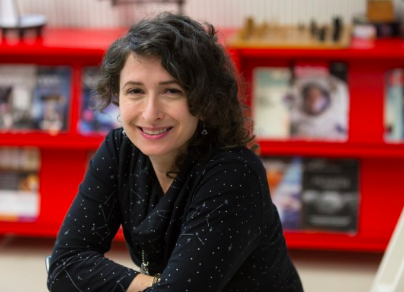Neurodivergence is understood as a variation in human brain functioning that influences sociability, learning, sensory processing, movement and/or attention, among others (Kapp, 2020). The term encompasses a broader set of distinct conditions such as autism, ADHD or dyslexia. We understand neurodivergence as a spectrum, since it covers a wide range of conditions with varying levels of intensity and different ways they affect the life of a neurodivergent person. Some are fully capable of sustaining themselves, whereas others need to rely on support in all areas of life. Because neurodivergent experience varies on a case-by-case basis, each individual’s strengths and challenges are unique. For example, an autistic person can struggle with memory in specific contexts, or have a strong response to certain sensory inputs, while being soothed by others. At the same time, being cognitively different allows neurodivergent people to see things from a completely different perspective. This allows them to develop novel solutions and offer insight into areas omitted by others.
Neurodivergent people are estimated to constitute between 15-20% of the global population (Doyle, 2020). It is therefore fair to assume that we encounter them in many areas of our lives, including research environments. Neurodivergent people may feel especially drawn to working in science due to its structured nature and an opportunity to focus on a topic they especially enjoy. However, due to differences in how neurodivergent people experience the world they very often encounter difficulties in education and pursuing their career in ways that may go unnoticed by the neurological majority, known as neurotypical people. As an example, the difficulties in focusing and different approaches to memorising makes following a standardised academic path difficult, additionally the differences in social communication can lead to social exclusion and deem finding help and networking tough.
Science as a system has rewarded certain behaviours for a long time, favouring certain groups of people and approaches to doing science. This creates an unwelcoming environment to alternate ways of thinking. However, including scientists with a wide range of experiences ensures that we study the natural world from all angles and allows science to develop in a way that reflects a whole range of human experience.
Neurodivergent people can exhibit cognitive styles that do not always match a traditional image of the research environment, but that does not diminish their capacity for creativity, integrity and insight. It can be argued that to progress science needs exactly what many neurodivergent people bring to the table – a unique approach to problem solving, intense focus on a specific topic and an ability to notice patterns where others could miss them.
Steps towards inclusion
Learn directly from your neurodivergent colleagues
In a series of interviews conducted by Nature with neurodivergent researchers from different fields, difficulties that are mentioned most often are related to their conditions being misunderstood by their colleagues (Pells, 2022). However it seems that the best way to make neurodivergent people feel included is to listen directly when they mention something they struggle with.
Positive examples of facilitating an environment in which the needs of neurodivergent people are heard include being open to different ways of communication and incorporating feedback on the conditions in the offices and meeting rooms. It can also mean incorporating their points into shaping the environment on a broader scale by including them in forming research goals and approaches, as well as the administrative side. Some of the things that someone with sensory issues can be distressed by, may remain unnoticed by neurotypical colleagues.
Notice when neurodivergent people are being invalidated or omitted
Neurodivergent people can use communication styles that are different from the majority. This means that keeping up with a conversation and understanding when to enter a discussion can be difficult for them. Pay attention to the flow of conversation and make especially sure that your neurodivergent colleagues are not omitted or interrupted. Allow them to express themselves fully in a way that works best for them. Be open to different ways of communicating (for example writing things down, slower pacing).
Consider different ways of thinking as assets
It is typical to think of neurodivergence as a limitation. The medical world has a tendency to use negative language when referring to neurodivergent people. Only recently the trend in the medical field shifts towards understanding the condition as a difference, not a shortcoming. Do not treat neurodivergence as something to get around, but recognise it as something that enriches the environment and offers new perspectives.
References
Kapp, S. K. (Ed.). (2020). Autistic Community and the Neurodiversity Movement: Stories from the Frontline. Springer Nature. https://doi.org/10.1007/978-981-13-8437-0
Pells, R. (2022). How science can do better for neurodivergent people. Nature. https://doi.org/10.1038/d41586-022-04248-5



